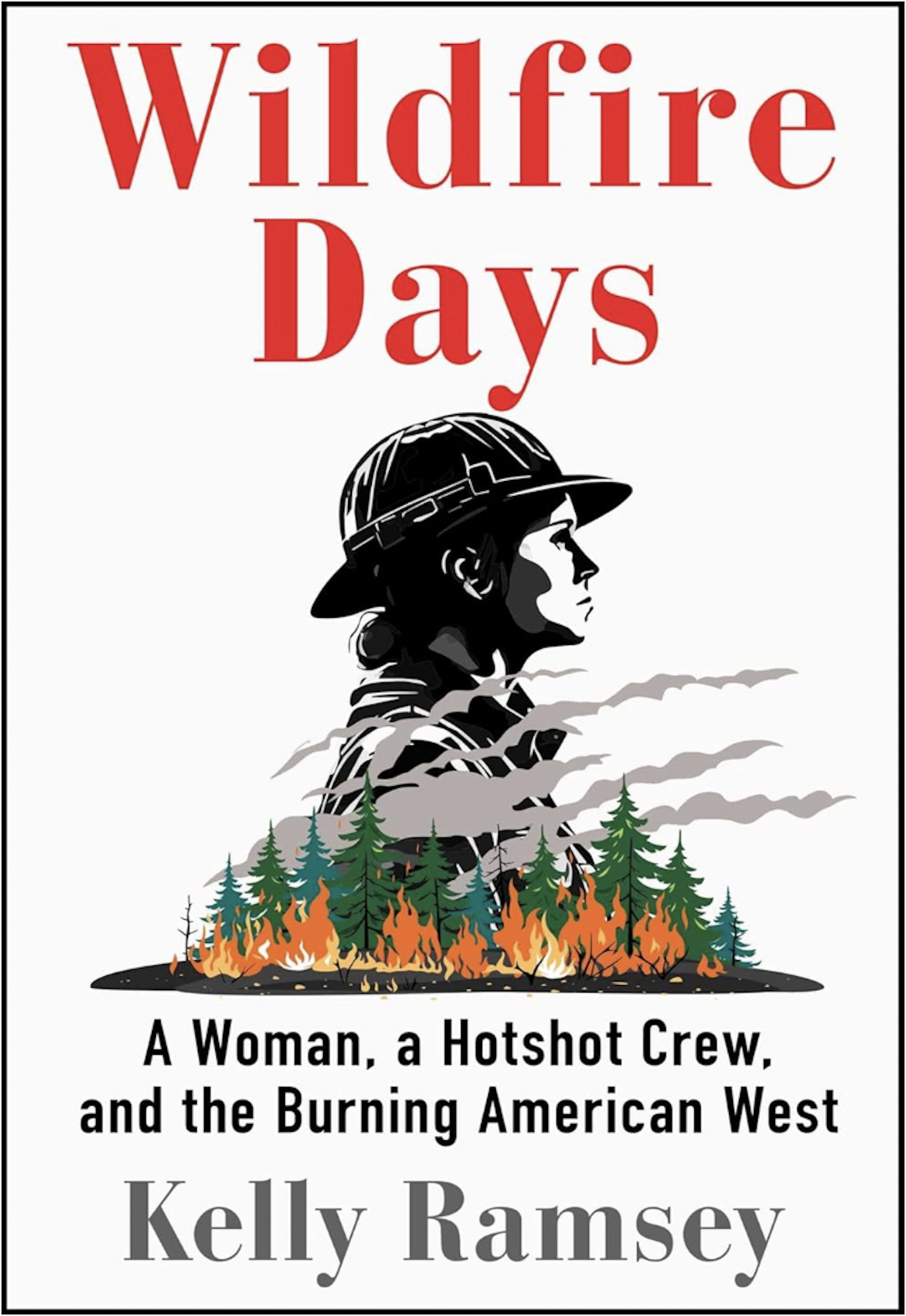On the amount of equipment she was required to lug up and down steep, uneven terrain all day:
I tried not to do the math: pack, forty-five pounds; tool, five or ten pounds; banjo, ten pounds; hose, ten pounds each, times four: total … one-hundred pounds? I wasn’t sure of my own weight, maybe 140 or 150, so what I carried was 70 percent of another me…? Don’t think about it.
On fighting her own body’s instincts, day after day:
The hill looks vertical. The leg is tired: it claims to be broken. It’s so fucking tired … The muscles clench and scream. You can’t breathe. Or you’re breathing too much, you’re gasping, but you still can’t get enough air.
On the sleep deprivation inherent in sleeping outdoors, in the open air, surrounded by her crew members:
Sleep was a perpetual concern and hard-won achievement. The simple roll of tarp, pad and sleeping bag was necessary, because packing up in the morning was a race — we had five minutes from wake-up to be in the trucks fully dressed, boots laced (the most time-consuming part), and you were forbidden to walk around before wake-up time lest you cut short someone else’s rest.
Ramsey breaks up passages about her physical suffering with other less exhausting and pertinent information. She writes beautifully about California — “Not a state, so much as a world” — and her awe at its natural gifts are ever-present. She gives an easy-to-understand overview of California’s history with wildfires, while never losing sight of the fact that humanity has turned these events into something new entirely. (“Smothering smoke implicated each one of us for our part in making a hotter world, enabling such a catastrophe,” she writes at one point.) She also explains, very usefully, the methods fire crews like hers use to try and get blazes under control.
Thankfully, Ramsey is not averse to a bit of humor now and again, successfully describing her first encounters with her fire crew in a manner that conjures images of Top Gun’s beach volleyball scene. (“The bro show was in full effect and I realized with horror that not a person in sight could loan me a tampon.”)


